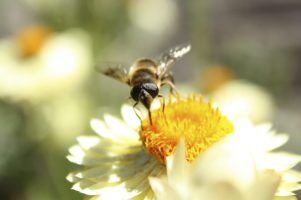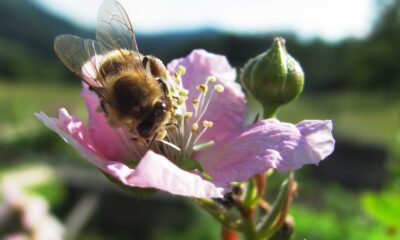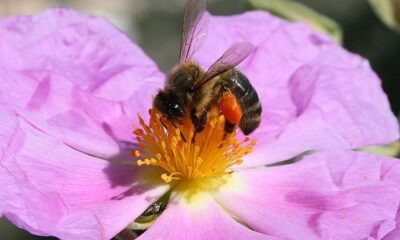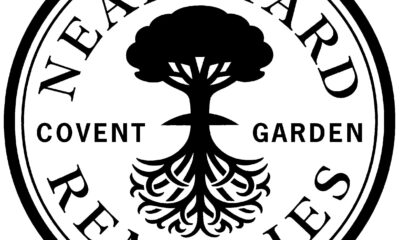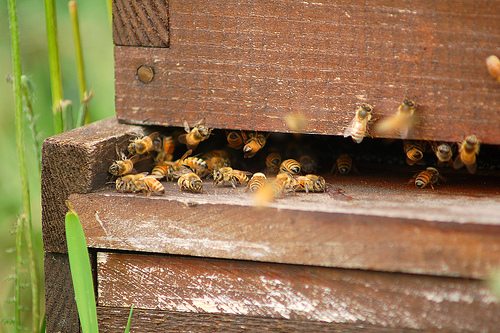

Environment
Bloodsucking parasite major threat to UK honeybees
A type of parasite is causing UK bees to contract deformed wing virus (DWV), which leads to developmental deformities and reduces their foraging ability, a new study has found.
Scientists from Warwick University have noted how where the varroa destructor parasite sucks honeybees’ blood, DWV is more frequently transmitted and amplified.
Lead author of the study Prof David Evans said, “We found that a harmful variant of the virus only multiplies rapidly if it is directly injected into honeybee haemolymph by varroa. Once injected, the variant takes over. In mite-exposed bees, levels of this single virulent form can be 10,000 times higher than in the absence of varroa.”
“Although exposure to varroa caused disruption to a number of genes involved in the bee’s immune response, it is the route of transmission which has caused this severe strain of DWV to become widespread.”
Varroa destructor is a parasitic mite that reproduces only in honeybee colonies and is one of the major threats for these pollinators, as DWV is very common among European bees.
“Our results strongly suggest that DWV is widespread in UK honeybees – even where varroa is absent. However, the identification of a single virulent form of the virus is an important step in developing strategies to boost honeybee health, to prevent colony losses and to safeguard this important pollinator”, Evans added.
Varroa has been often pointed out as the main reason for bee decline both in Europe and in the US. However, scientists have found consistent and overwhelming evidence that a crucial role in the issue is played by neonicotinoid pesticides, which cause colony collapse disorder (CCD).
Photo: Sean Winters via Flickr

Further reading:
EU ban on bee-harmful pesticides to begin in December
Banned pesticides highly likely to cause bee colony collapse, says Harvard study
Not enough honeybees in the UK to keep up with crop pollination
Loss of $200bn pollinating services will be harmful, scientists warn
Study: presence of bees ‘underestimated’ and improves value of crops



